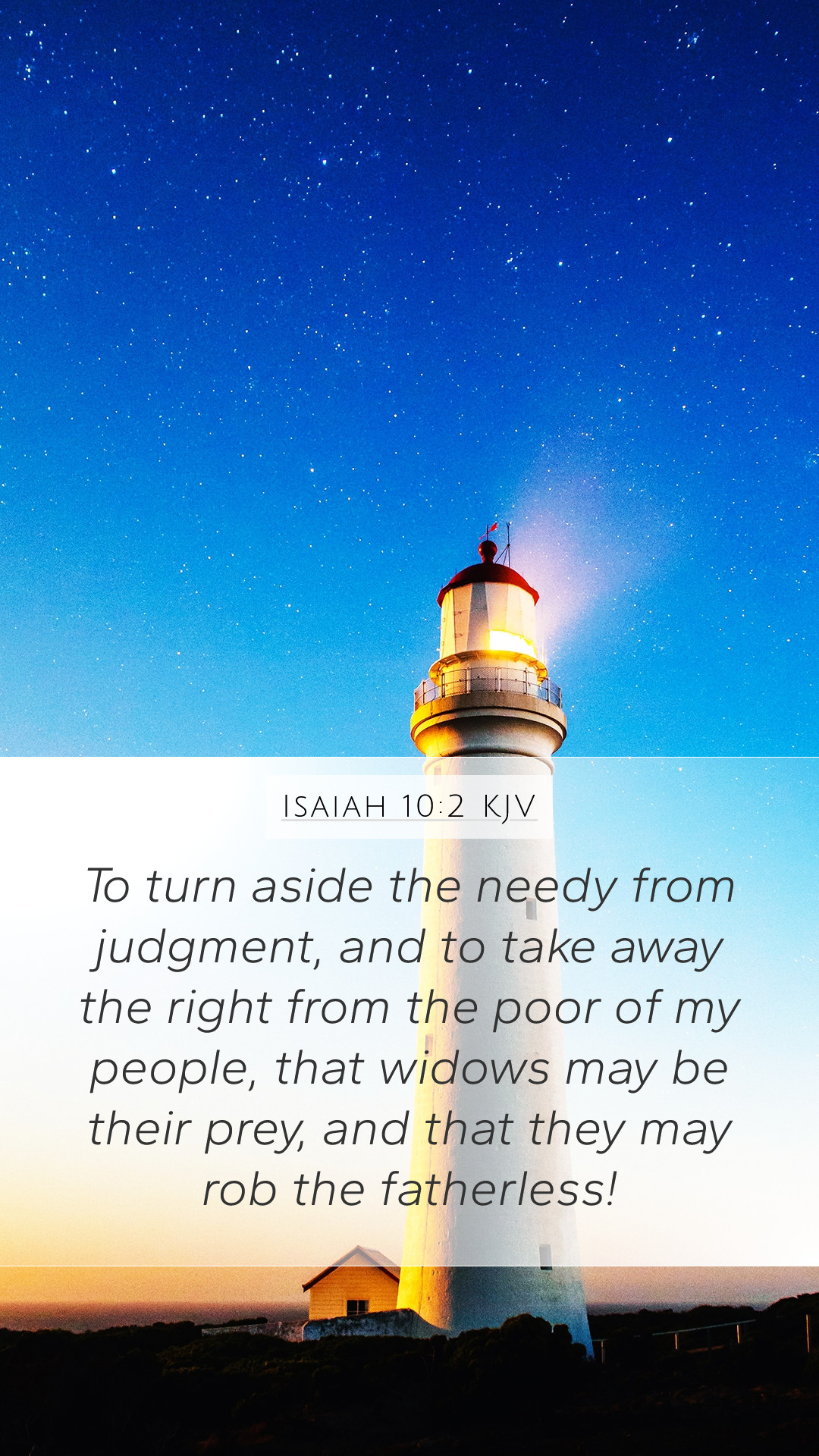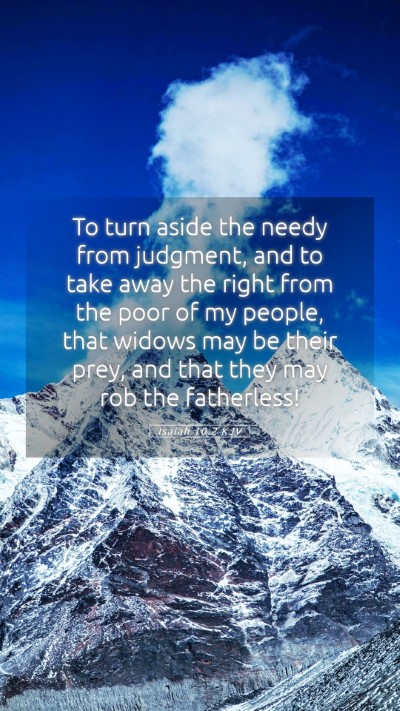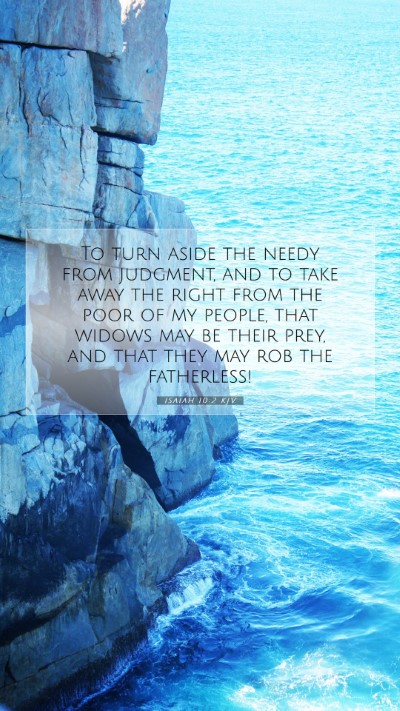Explaining Isaiah 10:2
Isaiah 10:2 presents a profound message about social justice, oppression, and accountability, which resonates through various commentaries. Below, we delve into the meanings, interpretations, and applications of this verse.
Verse Text
Isaiah 10:2 (KJV): "To turn aside the needy from judgment, and to take away the right from the poor of my people, that widows may be their prey, and that they may rob the fatherless!"
Summary of Meaning
This verse addresses the corruption of leaders who abuse their power and neglect the most vulnerable members of society — including the needy, the poor, the widows, and the orphans. The act of turning aside justice for personal or political gain leads to systemic oppression and suffering.
Key Themes
- Injustice: The verse highlights the misapplication of justice where the powerful exploit the weak.
- Social Responsibility: There is an emphasis on the duty of society to care for its less fortunate members.
- Divine Accountability: God’s displeasure with injustice and oppression serves as a warning to leaders who neglect their responsibilities.
Interpretation and Commentary Insights
Insights from prominent public domain commentaries shed light on this verse's depth.
Matthew Henry
Henry emphasizes that the Lord condemns leaders who pervert judgment. The neglect of the needy is not just a social issue but a moral failing with dire consequences. He observes that God is particularly concerned about the fate of those who are defenseless, urging a collective response to injustice.
Albert Barnes
Barnes notes the severe implications of the actions described in the verse. He explains that denying justice to the poor is an affront to God’s laws. The exploitation of widows and orphans reveals a deep moral decay in society. He urges readers to recognize the importance of striving for equity and fairness in all dealings.
Adam Clarke
Clarke points out that the powerful can easily manipulate the system to their advantage at the expense of the vulnerable. He warns that the divine judgment is inevitable for those who misuse their authority. Clarke further explains that understanding God’s justice requires acknowledging how significant their rights and wellbeing are to God Himself.
Applications of Isaiah 10:2
Understanding this verse encourages the faithful to actively pursue justice and advocate for those who are vulnerable. Here are several applications:
- Advocacy for Social Justice: Believers are called to fight against injustice and inequality in their communities.
- Support for the Vulnerable: Organizations and programs that aid widows, orphans, and the needy reflect God’s concern for the marginalized.
- Personal Reflection: Individuals should examine their own actions and ensure they uphold fairness and equity in their personal and communal dealings.
Cross References
Isaiah 10:2 can be linked with the following scripture references that provide additional context:
- Deuteronomy 24:17: "Thou shalt not pervert the judgment of the stranger, nor of the fatherless; nor take a widow's raiment to pledge."
- Proverbs 31:8-9: "Open thy mouth for the dumb in the cause of all such as are appointed to destruction."
- James 1:27: "Pure religion and undefiled before God and the Father is this, To visit the fatherless and widows in their affliction, and to keep himself unspotted from the world."
Conclusion
In summary, Isaiah 10:2 serves as a stark reminder of the moral obligations we hold towards the disadvantaged in our society. The insights provided by Matthew Henry, Albert Barnes, and Adam Clarke urge us to reflect on our role in upholding justice and righteousness. This verse is foundational for understanding social justice from a biblical perspective and encourages believers to take action in their communities.


